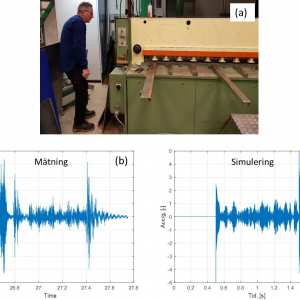Project time: 2017 – 2020
Budget: 15 365 500 kronor
Funding: SIP Produktion2030
Demonstrations of a digital infrastructure that supports manufacturing by creating a digital twin of the production system based on existing IT applications for development.
The purpose is to demonstrate how a digital infrastructure can support smart manufacturing in Scania´s pedal factory by creating a digital twin, based on existing IT applications for development and planning, of the production system.
The main challenge addressed is the coordination of data through standard APIs between various IT systems used in the development, planning and manufacturing phases. Further, to design smart use cases and applications which clearly illustrate the possibilities enabled by integrated information and to reach a w ide number of people and organizations.
The impact goal is an increased industrial insight in the importance and potential of digital infrastructure and a better understanding of how this can be realized at your own company.
The project will contribute to the development of infrastructure principles with a resulting impact in the international academic community. In the long term, the vision is that software providers offer APIs to connect to the open infrastructure.
All 6 partners collaborate to realize the demonstrator: one OEM, two suppliers, two academic parts and one institute. The approach is to use the applications and competence of the partners to integrate the different vendor applications in Scania’s portfolio through a standard based coordination hub and a decentralized CPS infrastructure by developing standardized APIs between the applications and the hub.
Industrial production systems typically include many process steps performed by automatic or semi-automatic machines. Depending on the different variables, these machines age and thereby affecting both the quality of the manufacturing step and the resource requirements
2017 – 2018

The project aims at radically improving the working environment and the employee security within the heavy manufacturing industries by using and adapting the latest technology for low and ultraprecise positioning and decision support systems. The target is to increase security and safety by adapting the decision-support and positioning system for the heavy manufacturing industries.
2017 – 2018
Maintenance in existing plants is becoming increasingly important, where predictive maintenance has become an emerging technology. The use of decision support tools contributes to environmentally and economically sustainable production. Within this project, different types of digital twins have been designed and evaluated. Specifically, new predictive model types have been tested in two different industrial case studies; a heat exchanger at SSAB and a profiled header at Svenska Fönster AB.
2017 – 2018